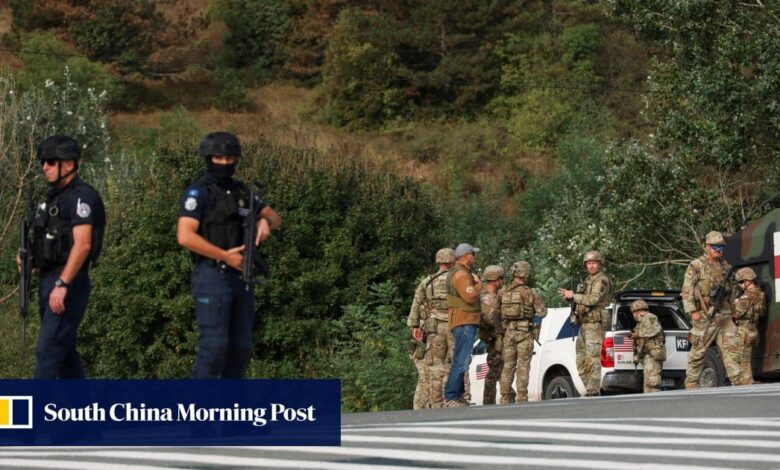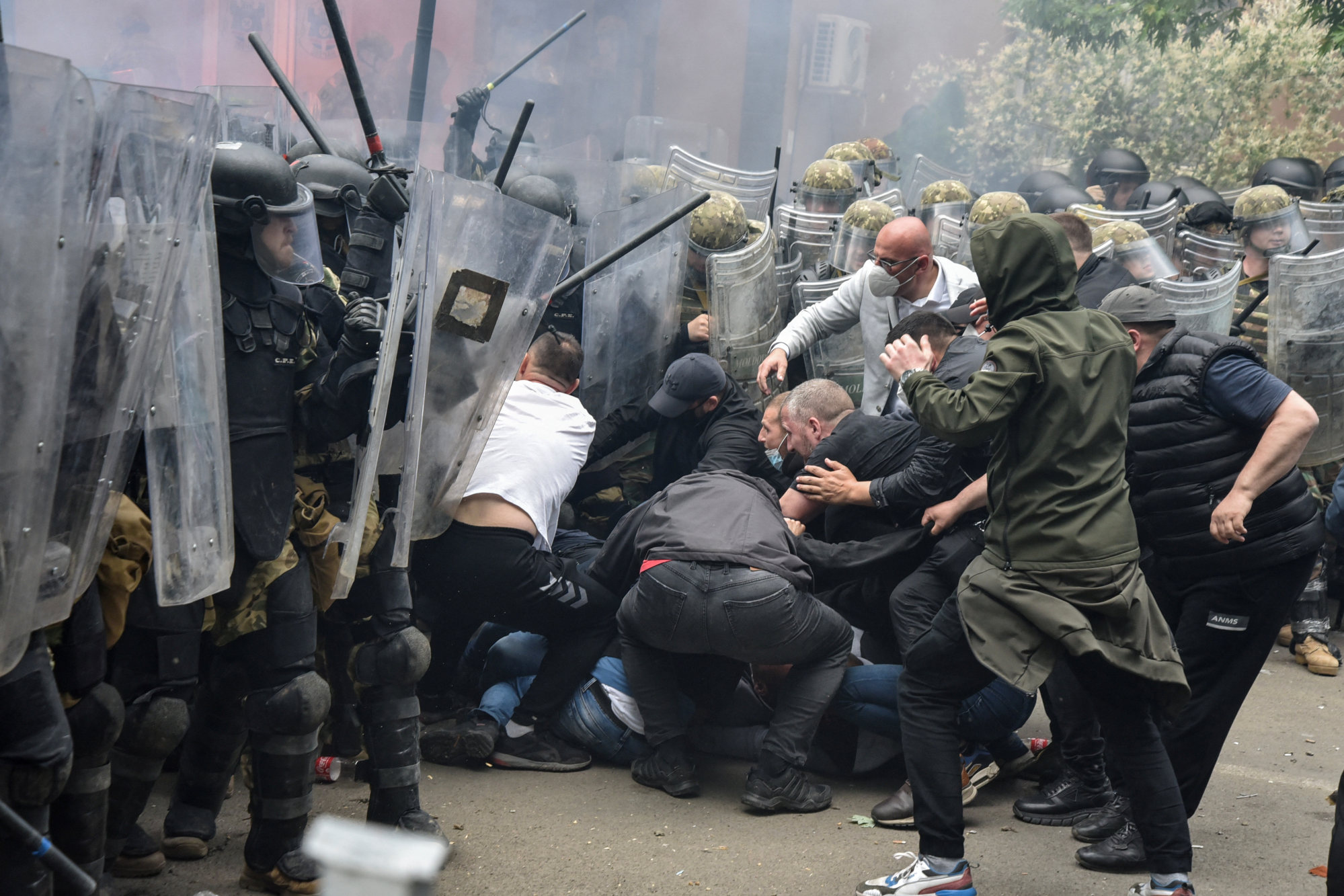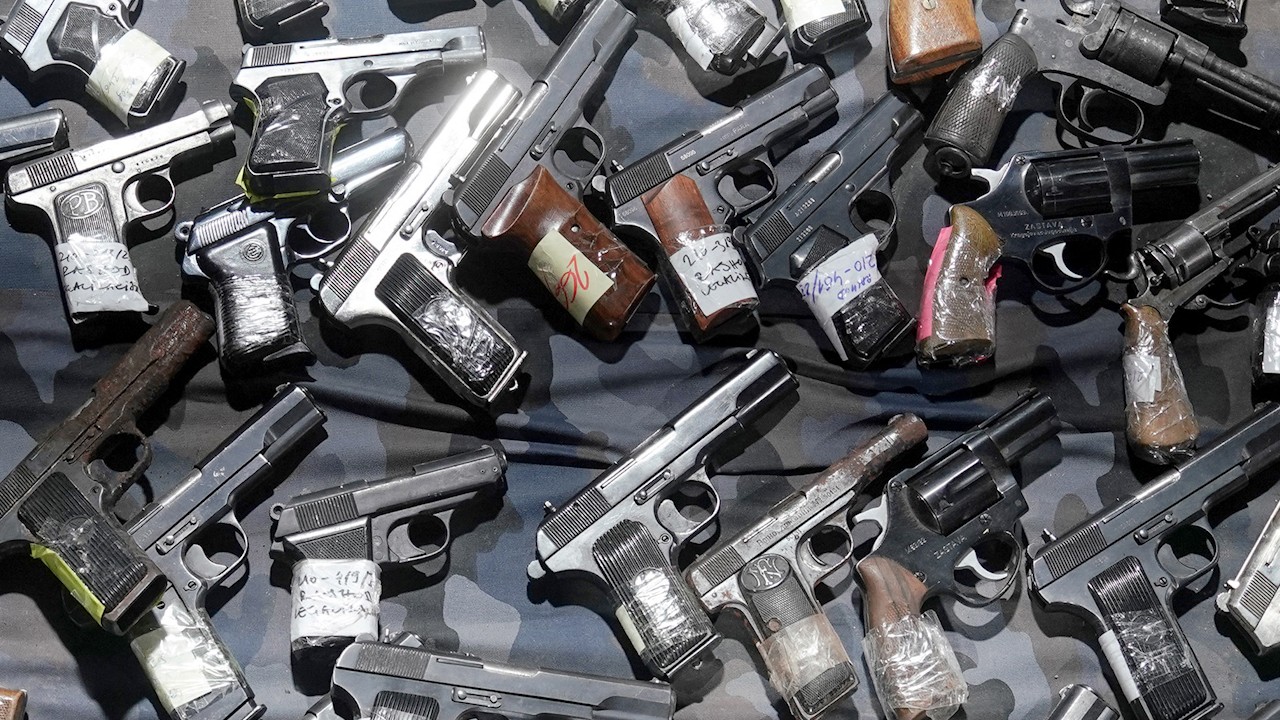Police officer killed, another wounded in Kosovo attack, raising tensions with Serbia

[ad_1]
Kosovo’s prime minister on Sunday said one police officer was killed and another wounded in an attack he blamed on support from neighbouring Serbia, raising the prospect of increased tensions between the two former war foes at a delicate moment in their European Union-facilitated dialogue to normalise ties.
Prime Minister Albin Kurti said “masked professionals armed with heavy weapons” opened fire on a police patrol in the village of Banjska, Leposavic, 55 kilometres (35 miles) north of the capital Pristina at 3am, killing one officer and injuring another, whose condition is not life-threatening.
Kosovo police said two trucks with no licence plates had blocked a bridge at the entrance of the village. Three police units were sent to unblock it but came under fire from different positions with different weapons, hand grenades and bombs.
Police managed to push back the attack and take two injured police officers at the hospital in southern Mitrovica. One of them was dead on arrival, doctors said.
The area around Mitrovica, in northern Kosovo, is where most of the country’s ethnic Serb minority lives, in four municipalities.
Serbia places troops on Kosovo border on highest combat alert
Serbia places troops on Kosovo border on highest combat alert
“Organised crime, which is politically, financially and logistically supported from Belgrade, is attacking our state,” Kurti wrote on his Facebook page.
Kurti said that gunfire against police with different weapons was ongoing.
“The government of the Republic of Kosovo and its state institutions are ready and coordinated to respond to crime and criminals, terror and terrorists,” he said.
Kosovar President Vjosa Osmani, who is in New York at the United Nations General Assembly, denounced the killing and the “attacks against the Republic of Kosovo’s sovereignty.”
“Such attacks testify once again the destabilising power of the criminal bands organised from Serbia which for a long time . are destabilising Kosovo and the region,” she said.
Earlier this month, an EU-facilitated dialogue meeting in Brussels between Kurti and Serbian President Aleksandar Vucic ended in acrimony.
In February, the EU put forward a 10-point plan to end months of political crises. Kurti and Vucic gave their approval at the time, but with some reservations that have still not been resolved.
The EU warned both countries that the commitments that Serbia and Kosovo made in February “are binding on them and play a role in the European path of the parties,” which refers to their chances of joining the 27-nation bloc.
Tensions have run high after clashes in May when about 90 Nato peacekeeping soldiers and 50 Serb protesters were injured.

Ethnic Albanians form more than 90 per cent of the population in Kosovo, with Serbs being the majority only in its northern region where a Serb-majority municipalities association is planned.
EU-sponsored talks on normalising relations between the two former wartime foes stalled last week, with the block’s foreign policy chief Josep Borrell blaming Kurti for failing to set up the association of Serb-majority municipalities which would give them more autonomy.
Serbia and its former province, Kosovo, have been at odds for decades. Their 1998-99 war left more than 10,000 people dead, mostly Kosovo Albanians. Kosovo unilaterally declared independence in 2008 but Belgrade has refused to recognise the move.
Additional reporting by Reuters
[ad_2]
Source link






